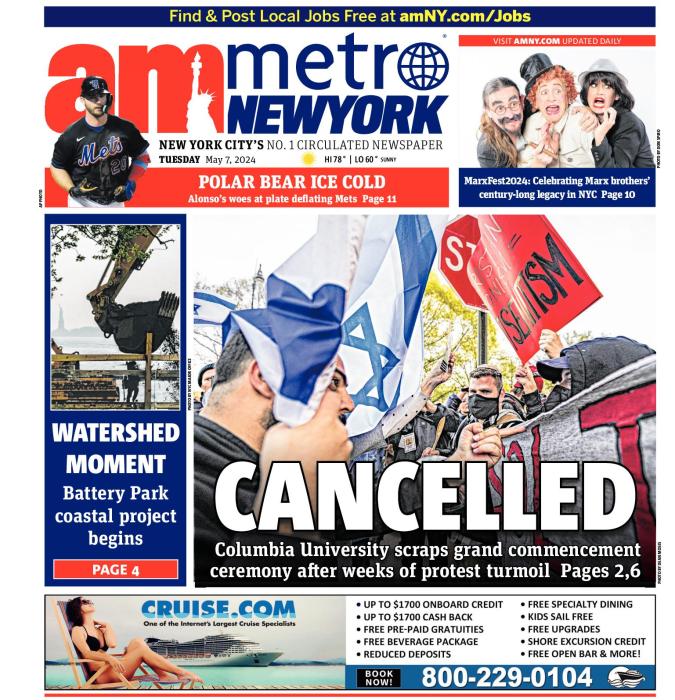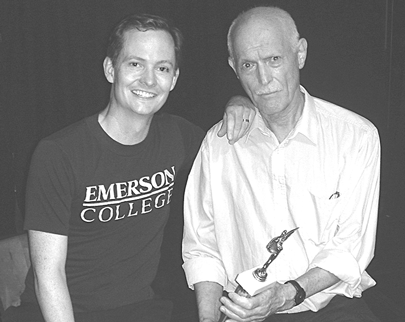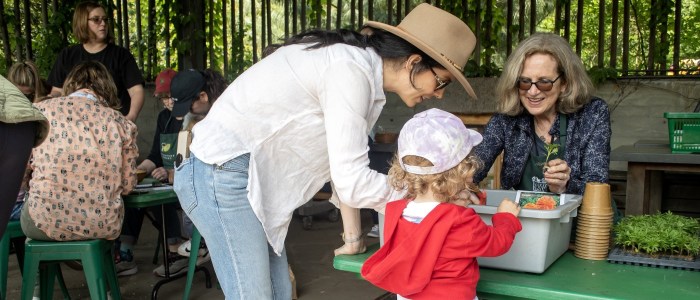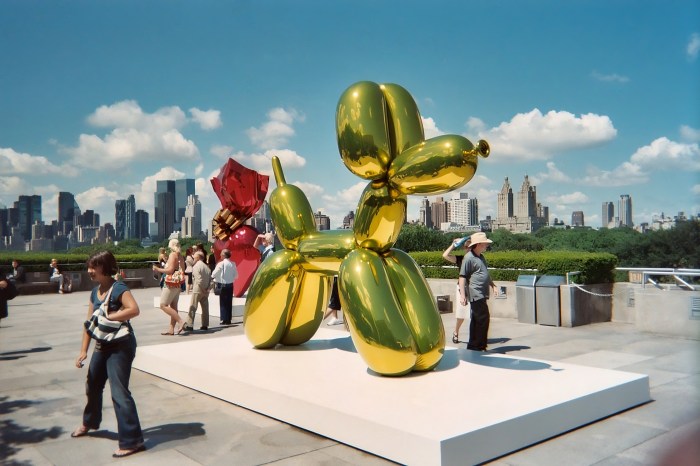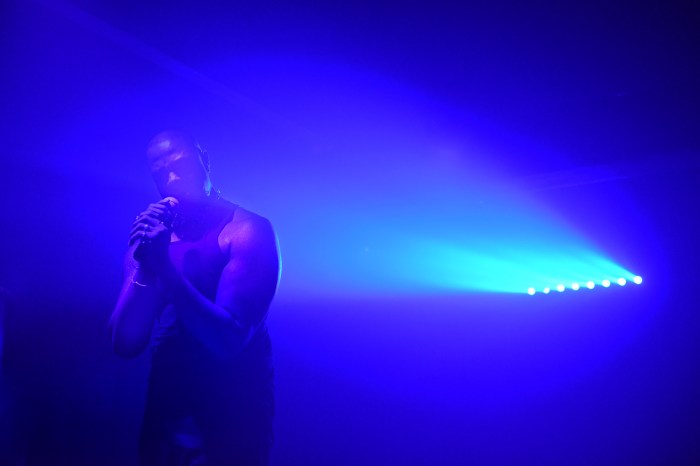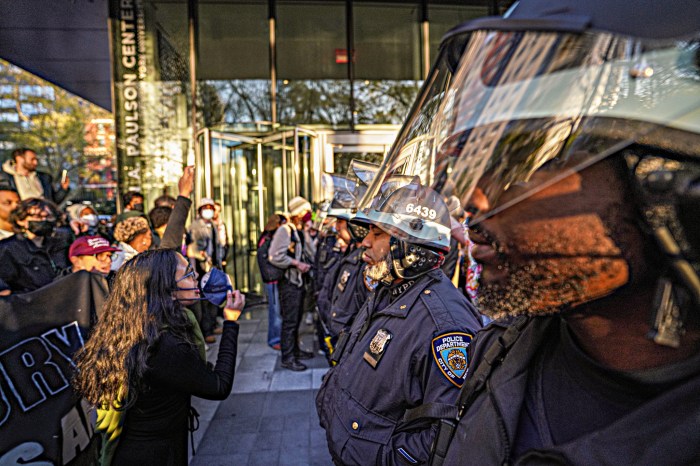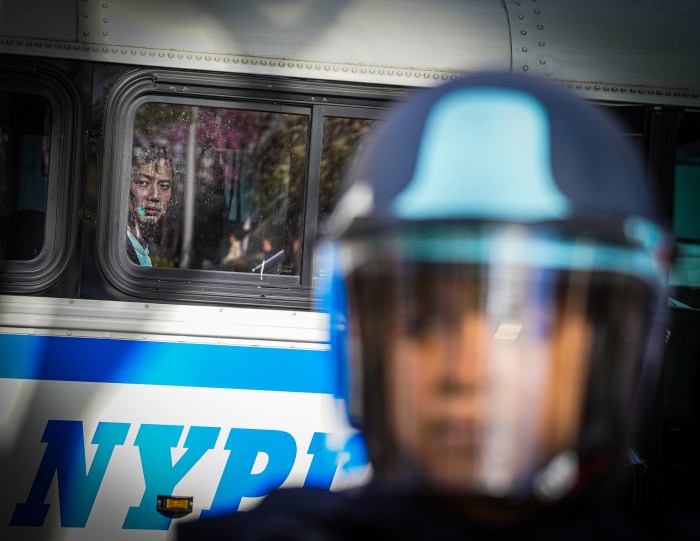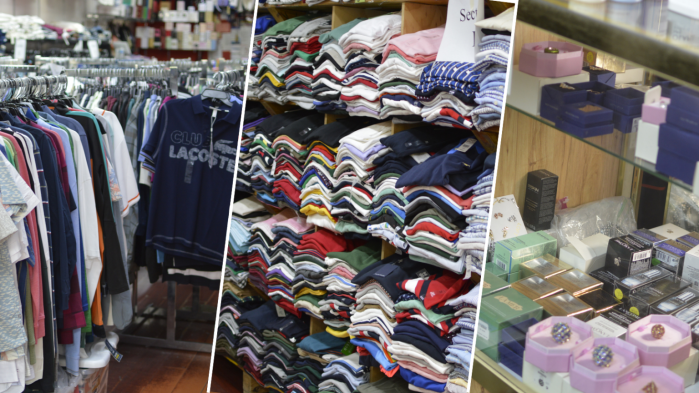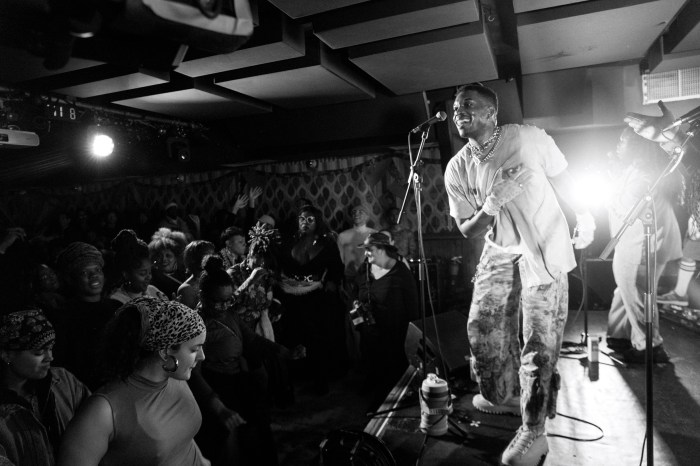By Jerry Tallmer
She was a working girl from a small town
But the town wasn’t so small
That it didn’t have a railroad track
Dividing the right side from the wrong side.
On the right side was the Hill
Where the swells lived in big houses,
And on the wrong side, the Hollow where the proletariat
Spent their greasy and unrewarding lives.
(For in those days the American town
was a living demonstration of Marxist theory.)
Joan of course lived in the hollow
In one of those shacks with sagging porches
The mill put up in rows for the workers.
Her father, Tim Crawford, was the town drunk.
Living on relief and odd jobs
Ever since the mines closed down when Joan was a baby.
Michael Boothroyd was an undergraduate at Emerson College, in Boston, in the mid-1980s, when he first read those lines. A graduate student, aware of Michael’s passion for Joan Crawford, had handed him a book containing that poem, which goes on for some 230 rich, dry, infectious lines, plus many other no less gemutlich poems about the great old Hollywood movies of the ’30s, ’40s, and ’50s that Boothroyd was nightly – maybe daily – soaking up at Cambridge’s Brattle Theater.
The book was “Stars in My Eyes” and the poet was Edward Field. Published by Sheep Meadow Press in 1978, the paperback was a reprise of the Grove Press 1967 original called “Variety Photoplays.” And by the way, the old Variety Photoplay Theater on Third Avenue just below 14th Street is now also gone with the wind. Kaput. Demolished.
“The Life of Joan Crawford” is sort of the centerpiece of the 10 poems, long and short, by Edward Field that Michael Boothroyd has adapted and directed under the title “Stars in My Eyes: True Stories and Tall Tales From Hollywood’s Golden Era,” for six performances, July 20 to August 5, at the WorkShop Main Stage, 312 West 36th Street.
By “adapted,” Boothroyd mostly means dividing aspects of the poems into different voices to be spoken, or narrated, by one actor or another – “emotionally echoing and reinforcing the story.” The stars that will shine again in playgoers’ eyes include Mae West, Dietrich, Garbo, and Frederick Chopin (a ringer), along with excursions into Frankenstein country and the Book of the Dead.
“I don’t think of my poetry as belonging strictly to the poetry world. I’m not just talking to other poets,” Field – who is also a very political and sometimes angry poet – said the other afternoon as he sat in a booth in a Downtown coffee shop. Next to him sat Michael Boothroyd, telling in his turn about going to a Joan Crawford movie at Chelsea Cinemas a year and a half ago – he lives in Chelsea – and coming out determined to hunt up Edward Field, whom he did not know.
He found him virtually next door in the Westbeth Artists Housing Complex where Field has lived with partner Neil Derrick since 1972.
The Joan Crawford movie was “They All Kissed the Bride” (1942) – “where she runs a trucking company. It was a blast.” (It also reunited two of the co-stars, Crawford and Melvyn Douglas – the third was Conrad Veidt – of this moviegoer’s favorite all-time Joan Crawford film, “A Woman’s Face.” Which was not about poor little wrong-side-of-the-tracks Joan at all.)
Field, there in the coffee shop, said all his “Variety Photoplays” pieces were written in the 1960s “when I was trying to expand the borderlines of poetry.” It came out of something he’d been doing among his friends.
“I would act out ‘Frankenstein’ at parties. Did the Monster, did the whole thing. Suddenly it hit me: These are poems, and I’m not writing them down. I wouldn’t have thought of writing them down. Then I realized how close they were to those legends of Hollywood” – Garbo, Dietrich, Mae West, et al. – “and started thinking about why they [those legends] affected me so deeply. The mythology we grow up in, in America.
“Dietrich, for instance. An inviolable mask – a monument. The diva poems have been dribbling out over the years, as well as poems about real divas like Anna Moffo. Hollywood divas and opera divas are all the same.
“One of the problems was that a lot of these movies were considered trash, junk. People” – intellectual snobs he was polite enough not to say – “couldn’t see it as something in itself, couldn’t see the innocence. If I do talk to the actors,” said Edward Field, “I will tell them that all these things come out of America’s state of innocence.
“All this also fits in with the social/political background of the 1930s, the struggle to unionize the factories … And all those lefties going out to Hollywood to write for the movies, and sneering at it.”
The bill at the WorkShop is part of the Seventh Annual Midtown International Theatre Festival – rather like a Midtown Fringe festival. The actors are James Gash, Jessica Jennings, Ryan G. Metzger, Charlotte Miller, Paige Rien, Benjamin Solomon. The assistant director is Alexandra Cohen-Spiegler.
“A lot of people over the years have suggested my doing a production, but,” said Field, “nobody came through until Michael.”
“We did it once before, last year, at Fashion PlayFest,” said Boothroyd.
“A very interesting experience,” said Field. “There were three performances. The first two had an audience of old folks, very sedate, but they enjoyed it. The third night we got young people who went crazy, yakking, sizzling. So responsive.”
“I think my generation is responsive to your stuff,” said Boothroyd to Field. “May I say you’re ahead of your time?” Pause. “I missed nostalgia. Movies nowadays go from theater to DVD in seven months.”
Michael Boothroyd, a product of Maynard, Massachusetts, had his 41st birthday a few days ago. He did a lot of what was called Oral Interpretation at Emerson (BA, 1987) – “You’re a big deal at Emerson,” he said to Field – and is also an actor who can be seen right now in a two-minute American Express commercial directed by M. Night Shyamalan, and in some scenes of “The Nanny Diaries.”
Edward Field, born 1924 in Brooklyn, has been a gallant gay activist, in and out of poetry, since before the term was invented. Most lately he has given us a wonderfully readable book called “The Man Who Would Marry Susan Sontag: And Other Intimate Portraits of the Bohemian Era” (University of Wisconsin Press, 2005.)
“So now I have to go on to my new book of memoirs, ‘The Men in My Bed.’ It’s actually about two men: my father and Neil.”
So Joan found her place in life at last.
They always said she’d make it up there, surrounded by the help.
A lady, moving gracefully among the guests,
And what a difference now:
The miners in tuxes standing around the punchbowl with the swells,
The colored butler joining in the fun with loud yaks,
A new era, the classless society,
Brought about the smartest little woman in the USA.
Ladies and Gentlemen: Miss Joan Crawford.
STARS IN MY EYES. Based on the poetry of Edward Field. Adapted and directed by Michael Boothroyd. A Most Polite Productions presentation for six performances, July 20 to August 5. at WorkShop Main Stage Theater, 312 West 36th Street, (212) 868-4444.
